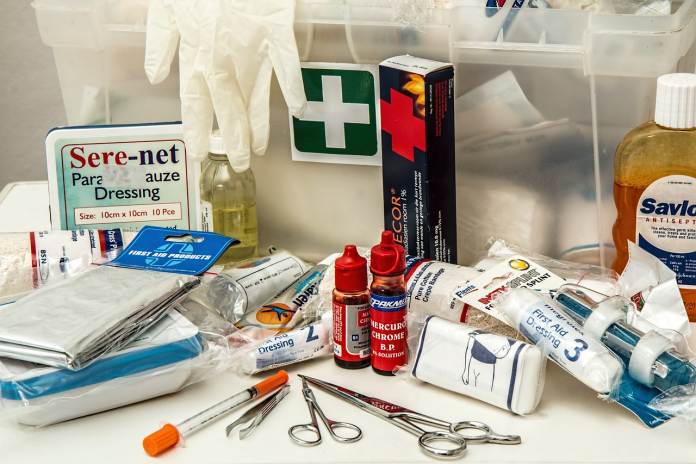Imagine you’re a senior, enjoying your golden years. Suddenly, an accident happens. You’re the only one there. It’s scary, right? But what if you could help? That’s where first-aid certification comes in handy.
It equips you with vital skills to handle emergencies confidently and independently. So why not give it a shot?
Let’s dive into why every senior should consider getting a first aid certification.
The Importance of First Aid Certification for the Elderly
You’re never too old to learn, and that’s especially true when it comes to first aid certification. As a senior, you might think this is something best left to the younger generations; however, there’s no age limit on being prepared. First aid training equips you with skills necessary not only for your own safety but also to assist others in need.
Mishaps can occur anytime and anywhere—at home, while shopping, or during a family gathering. Wouldn’t it be comforting to know that if an incident happens, you’ve got the knowledge to handle it? Being able to provide immediate care until professional help arrives could potentially save a life.
First aid certification doesn’t just cover physical health emergencies like cardiac arrest or choking. It also includes mental health crises such as anxiety attacks or episodes of confusion, often experienced by seniors themselves.
Health Benefits of First Aid Knowledge for Seniors
https://cdn.pixabay.com/photo/2018/01/14/21/36/first-aid-3082670_1280.jpg
Knowing how to respond in a medical emergency not only boosts your confidence, but it’s also a great way to ensure your personal health and safety. As a senior, the importance of this knowledge can’t be overstated. It’s not just about being able to help others; it’s equally beneficial for your own wellbeing.
Your understanding of first aid could mean the difference between minor injuries and major complications. Imagine you’re alone and you trip, resulting in a laceration or sprain. With first aid knowledge, you’d know precisely what to do: clean the wound to prevent infection or apply cold compresses and elevation for that sprained ankle.
Equipping yourself with first aid skills also lessens anxiety around potential emergencies. You’re more prepared and confident—that’s peace of mind right there! Plus, maintaining an active brain by learning new things like first aid is actually good for cognitive health, which is crucial as we age.
In essence, having these life-saving skills under your belt holds numerous benefits, both physical and mental, which contribute positively to your overall health as a senior citizen. So don’t delay getting certified—it’s definitely worth the effort!
The Role of First Aid Certification in Increasing Independence Among Seniors
Recognizing the notable impact of acquiring first aid credentials on enhancing the independence of the elderly population is crucial. The acquisition of this knowledge empowers seniors to effectively manage their health emergencies, thereby diminishing their reliance on external assistance.
Through First Aid Training Courses & Certification in Dubai, seniors embrace self-reliance as they gain the essential skills to address minor injuries and medical crises independently. This newfound capability eliminates the need to always await aid, allowing immediate action and potential prevention of escalated situations.
The assurance of possessing life-saving expertise not only instills peace of mind within oneself but also extends a comforting sense of security to those concerned about the senior’s well-being.
Moreover, the confidence derived from this certification serves as a catalyst for more active living. The mitigation of apprehensions related to potential accidents or health concerns encourages seniors to lead more vibrant lifestyles.
In essence, the attainment of first aid certification cultivates an environment in which seniors navigate their daily routines with heightened confidence, alleviating anxieties about potential health emergencies. The overarching goal is to nurture self-reliance, thereby enriching overall wellness and enhancing the quality of life for seniors.
In delving deeper, we unravel how significantly elevates the confidence of seniors, empowering them to embrace life’s challenges with renewed assurance.
First Aid Certification: A Confidence Booster for Seniors
Having the ability to administer immediate medical attention isn’t just a skill; it’s a confidence booster, especially for the elderly population. Imagine feeling empowered to handle emergencies instead of waiting helplessly for professionals to arrive. That’s what first aid certification can do for you.
Understanding basic life-saving techniques doesn’t merely make you self-reliant; it also instills a sense of assurance and composure in dire situations. You’ll know exactly what actions need to be taken, reducing panic and fear. It’s common for seniors to worry about possible health crises due to their age-related vulnerabilities. This training helps alleviate those fears.
Moreover, it’s not just about your safety but also that of others around you—friends, family, or even strangers—who might benefit from your knowledge in an emergency situation. Think of how comforting that would be for them too!
Remember, though, that learning first aid doesn’t mean you’re taking on the role of a healthcare professional. But it does equip you with valuable tools that could potentially save lives while awaiting medical assistance.
Practical Aspects of First Aid Training for Seniors
https://cdn.pixabay.com/photo/2019/09/27/07/29/first-aid-4507747_1280.jpg
There are practical aspects to consider when elderly people decide to undergo life-saving training. Age should not be a barrier to learning critical first-aid skills. However, it is essential that the training be tailored to accommodate their unique physical and cognitive abilities.
Here are three things you need to keep in mind:
- Adaptation: The training content needs modification for seniors to make sure it is easy to understand and retain. Instructors must also adapt their teaching methods, possibly slowing down or repeating key points.
- Accessibility: Seniors may have mobility issues. Hence, the location should be easily accessible with proper facilities like wheelchair ramps, comfortable seating, etc.
- Safety Considerations: Given the potential health risks associated with strenuous activities, ensure safety precautions are in place during hands-on practice sessions.
Real-Life Stories: How First Aid Certification Saved Lives in the Senior Community
You’ve probably heard some incredible real-life stories from the elderly community about how first aid training played a pivotal role in saving lives. These tales aren’t just anecdotes; they’re testaments to the power of first aid knowledge in critical situations.
Imagine this scenario: during a family gathering, an elderly relative suddenly collapses. Chaos ensues, but amidst the panic, Grandpa Joe remains calm. Why? Because he’s equipped with first aid skills. He quickly performs CPR and stabilizes his brother until paramedics arrive. It turns out that quick action was instrumental in saving his life.
Or consider Grandma Sue, who noticed her friend showing signs of stroke during their weekly bingo game. Remembering her first aid training, she identified the symptoms early enough to call for immediate medical attention. The doctors later confirmed that Sue’s prompt action undoubtedly saved her friend from severe damage.
It’s clear that these seniors made a significant difference because they had first aid training under their belts—not just for themselves but for others too. These stories emphasize why it’s never too late to learn and apply lifesaving skills like first aid; you could be someone’s hero one day!
Conclusion
So, you see, getting a first aid certification isn’t just a feather in your cap. It’s vital for your health and boosts your confidence and independence.
Plus, you’ll have the practical knowledge to save lives—maybe even your own. Don’t let fear hold you back; embrace the opportunity to learn.
After all, it’s better to be safe than sorry!























